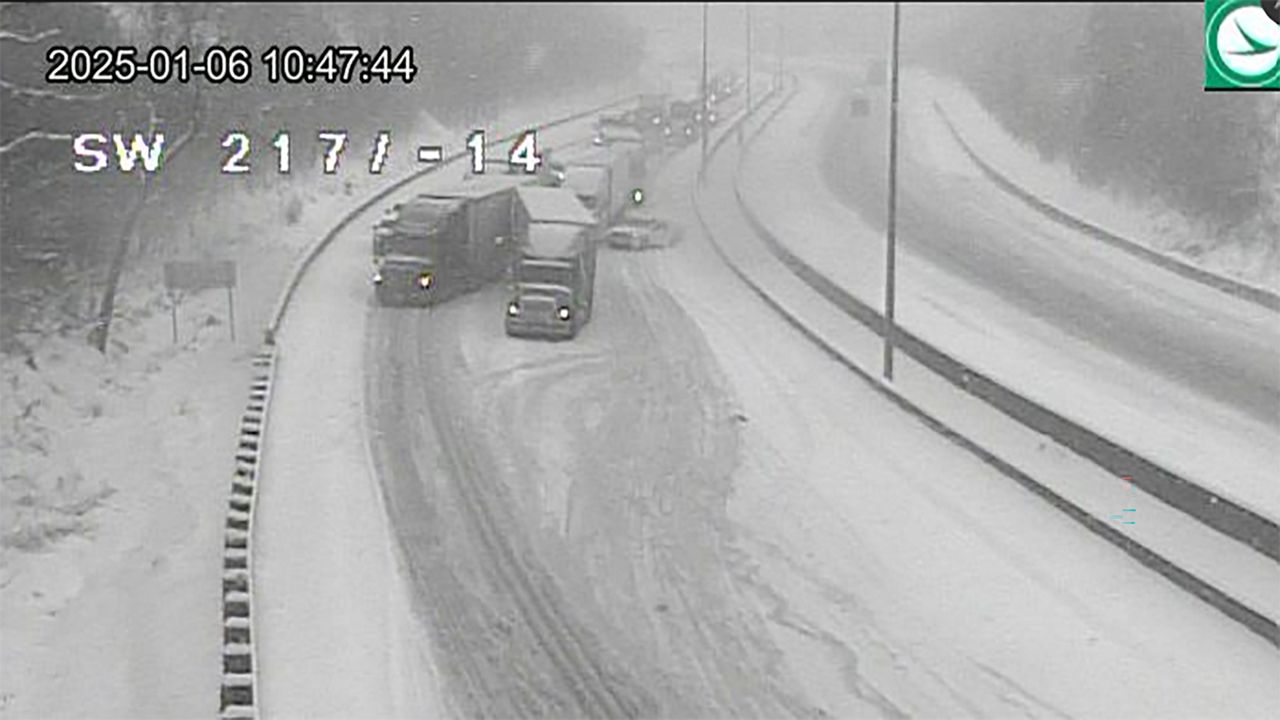World
Russia-Ukraine war: List of key events, day 464
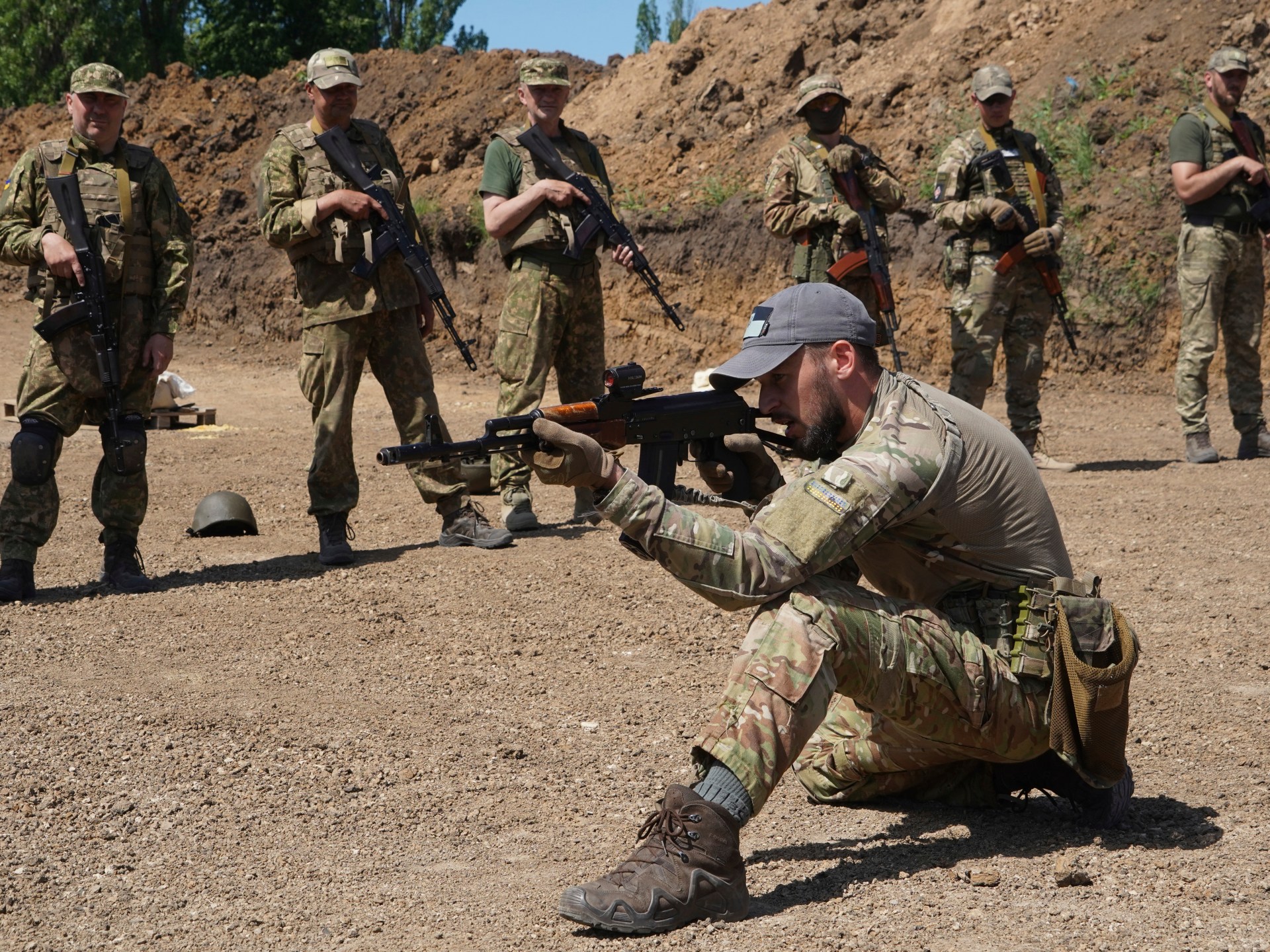
As the war enters its 464th day, here’s a look at the main developments.
This is the situation as it stands on Friday, June 2, 2023.
Fighting
- Ukrainian officials said at least three people, including a girl and her mother, were killed in a Russian missile attack on Kyiv.
- The governor of Russia’s Belgorod region said alleged Ukrainian shelling of the town of Shebekino wounded nine people and damaged buildings. Belgorod borders Ukraine’s Kharkiv region.
- Russia’s defence ministry said it repelled three cross-border attacks near the town, accusing Ukraine of using what it said were “terrorist formations”. Ukraine denies its military is involved in the incursions.
- The Russian Volunteer Corps (RVC), a far-right paramilitary group of ethnic Russians that supports Ukraine, posted images on social media of fighters firing weapons and said a “second phase” of incursions had begun.
- The Institute for the Study of War (ISW), a Washington, DC-based think tank, said that Russian military commanders had probably ordered Chechen fighters to take the lead in the fighting in the Ukraine war.
- In a new video, Wagner Group chief Yevgeny Prigozhin condemned the Russian army’s “clowns” and said his mercenary troops would take a month’s rest after leaving Bakhmut on June 5.
- Russian investigators said they were seeking a third suspect in the April killing of popular pro-war blogger Vladlen Tatarsky in an explosion at a café in St Petersburg.
Diplomacy
- Ukrainian President Volodymyr Zelenskyy reiterated his call at a meeting in Moldova for his country to join NATO and the European Union, but the security alliance remained divided.
- Zelenskyy said he spoke to European Commission President Ursula von der Leyen about Ukraine’s peace plan
- NATO chief Jens Stoltenberg said the alliance was looking at how to boost Ukraine’s non-member status in the alliance and was preparing a framework for security commitments after the end of the war.
- US President Joe Biden said he is confident Sweden will join NATO “as soon as possible”, despite Turkey and Hungary continuing to block the country’s membership.
- Brazilian President Luiz Inacio Lula da Silva reiterated his country’s criticism of Russia’s full-scale invasion of Ukraine but said he was trying to remain neutral in order to be able to broker potential peace talks.
- Ukraine’s Ministry of Renovation and Infrastructure said the Black Sea grain export deal had been halted again because Russia had blocked the registration of ships to all Ukrainian ports.
- A United Nations spokesman said Russia had informed officials overseeing the Black Sea grain deal that it would limit the registration of ships to the port of Pivdennyi in Ukraine’s Odesa province until all parties agreed to unblock the transit of Russian ammonia. Spokesman Stephane Dujarric said the situation was “very serious”.
- A BRICS (Brazil, Russia, India, China and South Africa) meeting of foreign ministers in South Africa was overshadowed by questions on whether Russian President Vladimir Putin will be arrested if he attends the bloc’s summit in August.
- Canada’s foreign ministry announced sanctions on Moldovan oligarchs, business people and politicians over their connections to Russia and to prevent alleged Russian destabilisation efforts in the region.
- The US Department of Defense said in a statement it would buy Elon Musk’s Starlink satellite communications service for Ukraine.
Weapons
- Zelenskyy called on European leaders for a “coalition” of Patriot air defence systems and modern fighter jets in an address to other European leaders. He said they would be “decisive components” in the war.
- The Netherlands wants to buy dozens more Leopard 1 tanks for Ukraine, the Dutch press agency ANP reported, citing sources.

World
Trump Moves to Delay Sentencing in Hush Money Case, Court Document Shows
World
Who is Pierre Poilievre? Canada's Conservative leader seeking to become next prime minister after Trudeau exit
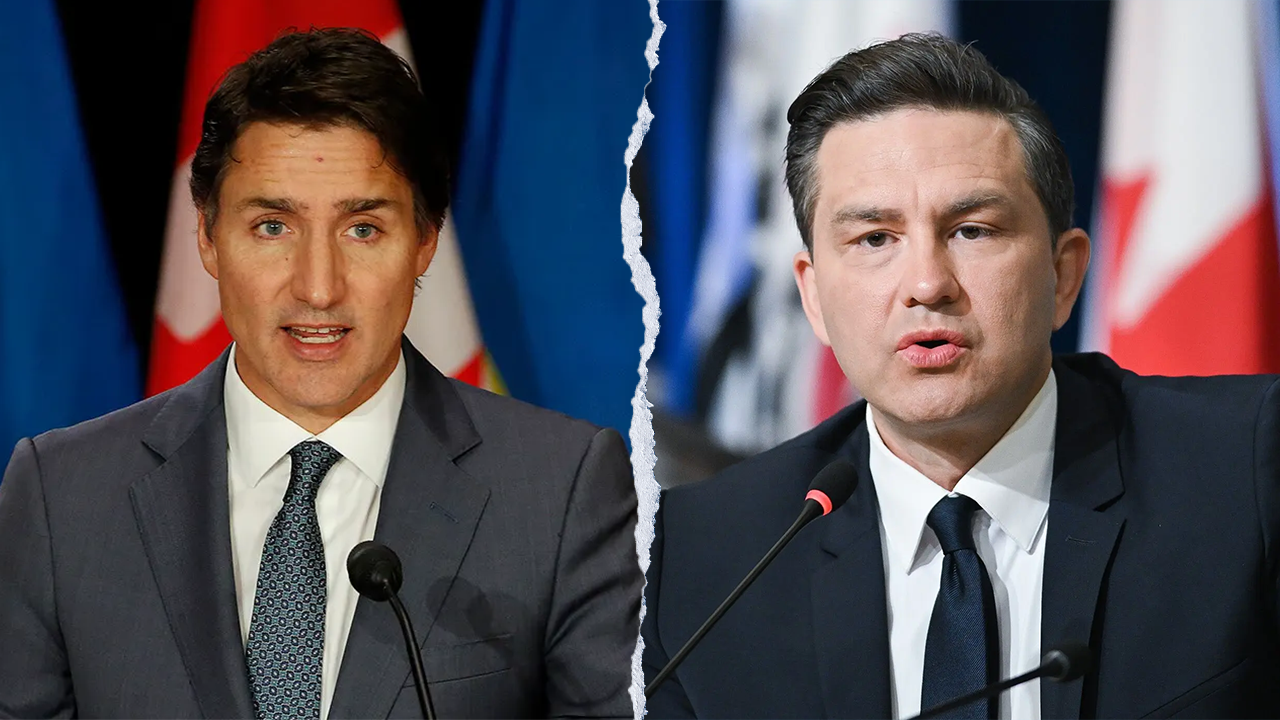
OTTAWA, Canada— With Canadian Prime Minister Justin Trudeau’s announcement on Monday morning that he will step down as Liberal Party leader, whoever succeeds him will face Official Opposition Leader Pierre Poilievre, whose Conservative Party has nearly three times the support of committed voters (47% compared to 18% for the Liberals) in this year’s general election.
First elected to the House of Commons in 2004, 45-year-old, Calgary-born Poilievre, 45, became leader of the Canadian Conservatives in 2022 and has seen his party grow in popularity as Canadians have grown tired of 53-year-old Trudeau, whose Liberals formed government in 2015.
“Bring home the Canadian dream” has been one of the Conservatives’ major themes, and Poilievre has cast the Liberals as governing with ‘an extremely radical ideology,’ which he described as “basically authoritarian socialism,” in a recent 90-minute interview with popular podcast host Jordan Peterson.
CANADA’S TRUDEAU ANNOUNCES RESIGNATION FOLLOWING PARTY PRESSURE AMID CRITICISMS OF TRUMP, BUDGET HANDLING
Leader of Canada’s Conservative Party, Pierre Poilievre, speaks during a ‘Spike the Hike – Axe the Tax’ rally in Edmonton, on March 27, 2024, in Edmonton, Alberta, Canada. (Artur Widak/NurPhoto via Getty Images)
“People are sick and tired of grandiosity,” said Poilievre. “Horrendous, utopian wokeism” serves, he said, “egotistical personalities on top,” rather than “common people.”
Trudeau has said that Poilievre wants to “make Canada great again,” comparing the Tory leader to incoming U.S. President Donald Trump and his “Make America Great Again” mantra.
But while Poilievre’s populist messaging has generated comparisons to Trump’s political approach, the Canadian Conservative leader has pushed back the president-elect’s recent comments about making Canada the 51st state.
“I have the strength and the smarts to stand up for this country and my message to incoming President Trump is that first and foremost, Canada will never be the 51st state of the U.S.,” Poilievre said in an interview with Canadian broadcaster, CTV News, before Christmas.
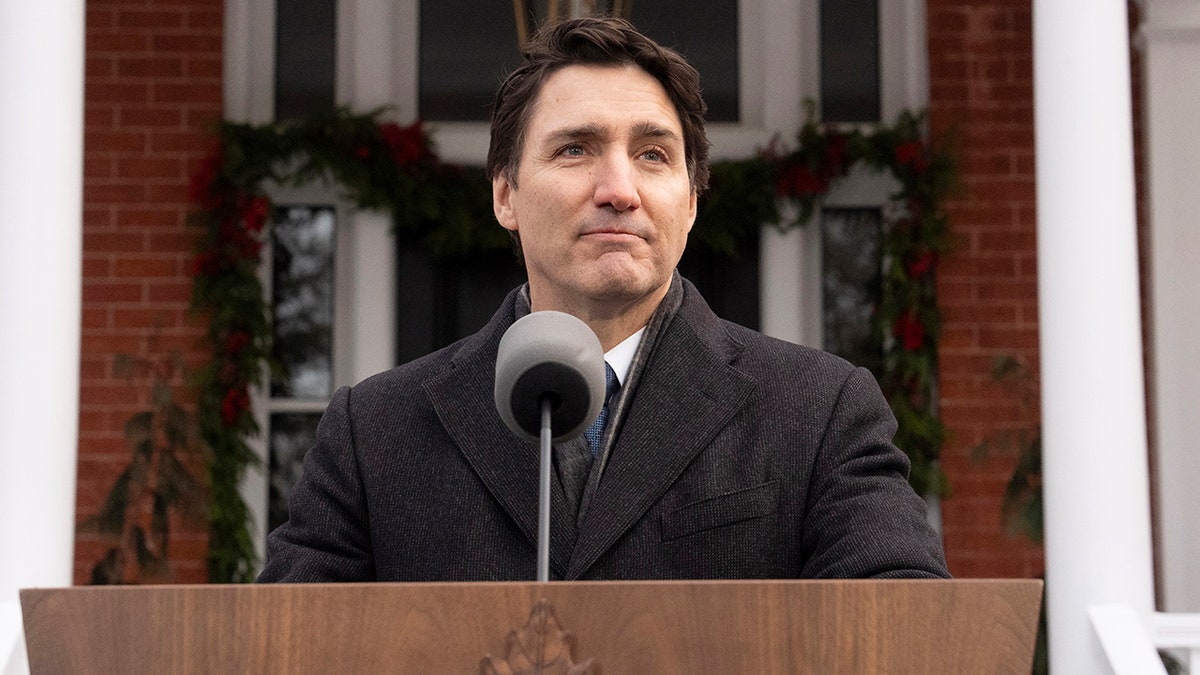
Canada Prime Minister Justin Trudeau speaks with media outside Rideau Cottage on Monday, Jan. 6, in Ottawa. (AP/Adrian Wyld/The Canadian Press)
The incoming Trump administration will almost assuredly deal with a Poilievre government as the Conservatives are poised to win the next Canadian election, which could come as early as this spring. When the House of Commons resumes sitting on March 24, the opposition parties are likely to defeat the minority Liberal government in a vote of no-confidence, which would trigger a national vote.
In his Peterson interview, Poilievre acknowledged that Trump — who has proposed a 25% tariff against Canadian exports — “negotiates very aggressively, and he likes to win.” But as prime minister, the Conservative leader said that he would seek “a great deal that will make both countries safer, richer and stronger.”
TRUMP SAYS US SUBSIDIES TO CANADA MAKE ‘NO SENSE,’ SUGGESTS CANADIANS WANT ‘TO BECOME THE 51ST STATE’
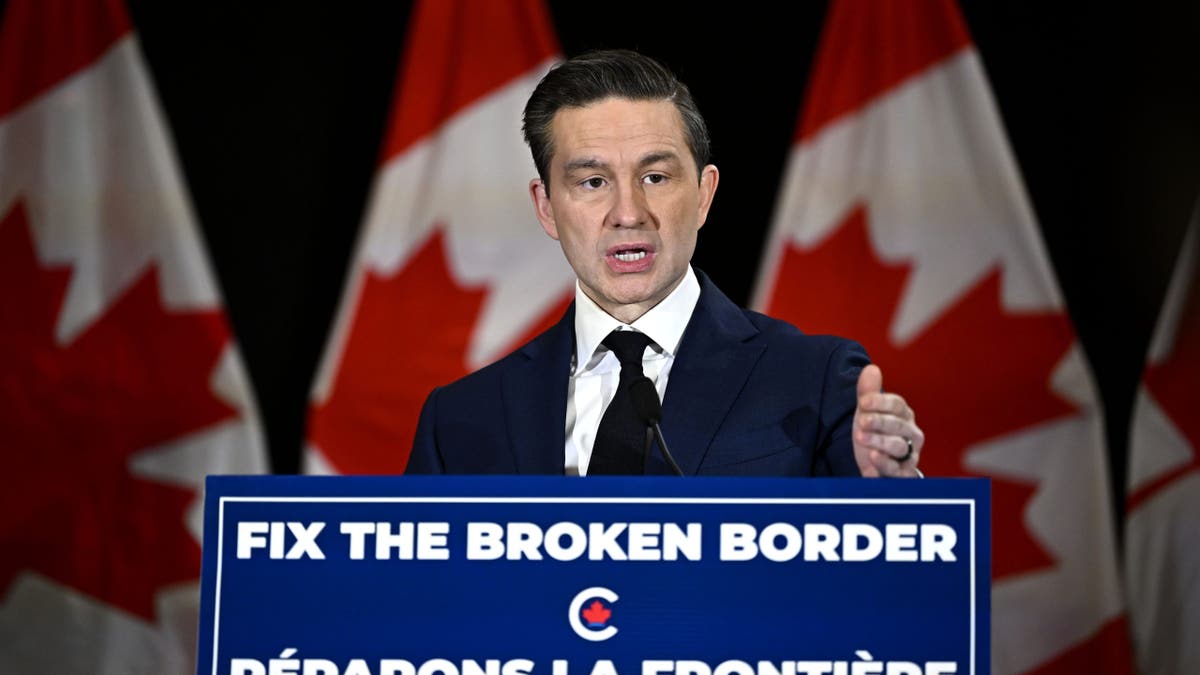
Canada Conservative Leader Pierre Poilievre holds a news conference in a hotel ballroom in Ottawa, on Sunday, Dec. 1, 2024. (ustin Tang/The Canadian Press via AP)
Poilievre said that he would accelerate approvals to build oil refineries, liquefied natural gas plants and nuclear facilities, and increase its electricity surplus with the U.S.
He also told Peterson that Canada sells its oil and gas to the U.S. at “enormous discounts,” which he characterized as a “ripoff,” in which “Canada is ripping itself off.”
A Poilievre-led government would also embark on “the biggest crackdown on crime in Canadian history” and that “habitual offenders will not get out of jail anymore,” the Conservative leader said.
On foreign affairs, the Canadian Conservatives’ 2023 policy document states that it would, as government, “take the required steps to renegotiate the Safe Third Country Agreement with the U.S. to close the gaps relating to illegal entries in Canada,” and that the Conservative Party recognizes Jerusalem as the capital of Israel. Canada’s embassy in Israel is currently in Tel Aviv.
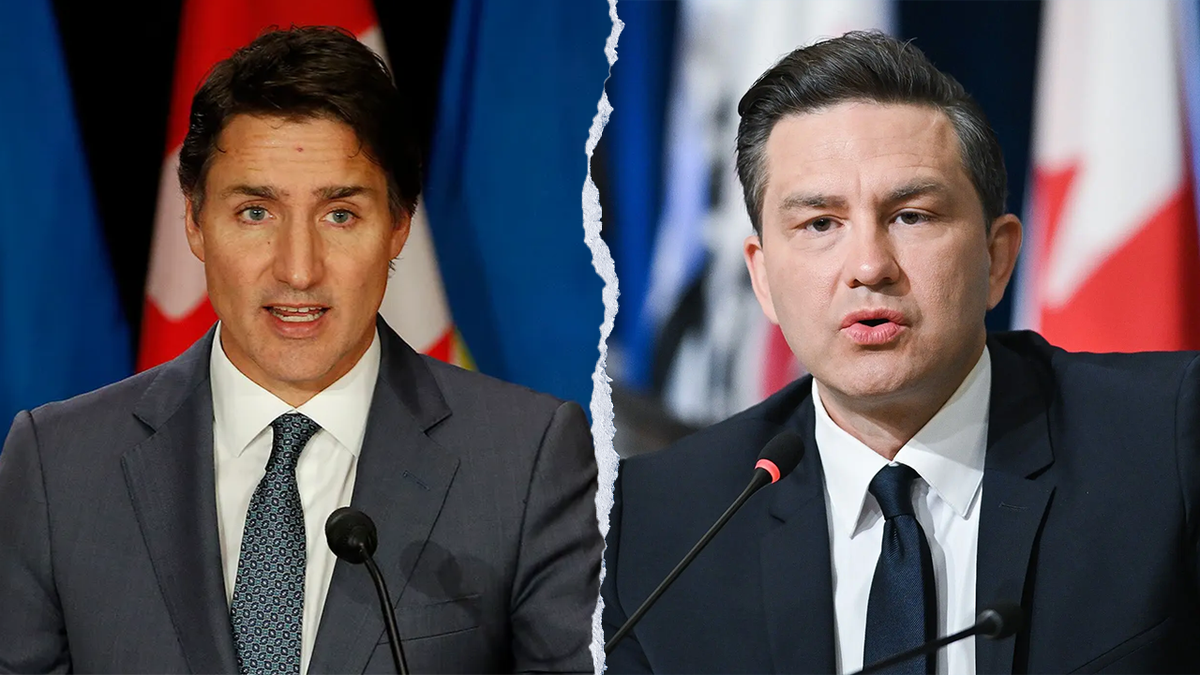
Outgoing Canadian Prime Minister Justin Trudeau
|Photo: David Kawai/Bloomberg via Getty Images. Canadian opposition leader, Pierre Poilievre, (R)
Photo: Graham Hughes/Bloomberg via Getty Images (Getty Images)
In a statement released in response to Trudeau’s resignation on Monday, Poilievre said that “this changes nothing” and that a Conservative Canadian government would “take back control of our border, take back control of immigration, take back control of spending, deficits and inflation. Take back control of our streets by locking up criminals, banning drugs, treating addiction and stopping gun smugglers.”
The Conservatives, added Poilievre, “would secure borders, rearm our forces, restore our freedom and put Canada First.”
World
US Congress certifies Donald Trump’s victory in 2024 presidential election

The quiet proceeding contrasts with efforts by Trump’s own supporters to overturn his 2020 loss by storming the US Capitol.
The United States Congress has certified Donald Trump’s victory in November’s presidential election, clearing a final hurdle for his return to the White House later this month.
Monday’s ceremony in Congress officially validated the 2024 Electoral College results.
Overseen by Vice President Kamala Harris, Trump’s main rival in the election, the event passed quickly and with little fanfare.
“Today was obviously a very important day,” Harris, who also serves as the president of the Senate, said in remarks afterwards.
“It was about what should be the norm and what the American people should be able to take for granted, which is that one of the most important pillars of our democracy is that there will be a peaceful transfer of power.”
The largely procedural affair marked a stark contrast with the last time Congress convened to certify Electoral College votes, on January 6, 2021.
During that ceremony, thousands of Trump’s supporters stormed the US Capitol in an effort to overturn then-President Trump’s defeat in the 2020 election.
Lawmakers were forced to evacuate as doors were smashed, police officers were attacked and one protester was shot to death while trying to enter a chamber through a broken window.
The attack took place after Trump held a rally nearby on the Ellipse, a park south of the White House, where he reiterated false claims that the election had been stolen through massive fraud.
Critics roundly condemned the attack as an assault on democracy, and the US Department of Justice has since charged 1,583 participants with federal crimes.
As of Monday, approximately 1,009 have pleaded guilty, with 327 offering guilty pleas to felony charges.
Trump himself faced two criminal indictments for his role in trying to overturn the 2020 election results: A federal case in Washington, DC, was recently dismissed, while a state-level case in Georgia is stalled but ongoing.
Nevertheless, four years later, Trump is set to return to power on the heels of his most successful presidential campaign to date.
In November, Trump won 312 Electoral College votes to Harris’s 226 and became the first Republican candidate to win the popular vote since 2004.
Trump’s Republican Party will also take control of Congress after winning majorities in both the House of Representatives and the Senate.
Many in the party have since embraced the Republican leader’s false claims about the 2020 election.
“Congress certifies our great election victory today – a big moment in history. MAGA!” Trump wrote on his platform Truth Social on Monday, using an acronym for his slogan, “Make America Great Again”.
Harris, meanwhile, urged respect for the tenets of US democracy. She cited Monday’s peaceful certification as an example of the right way forward.
“I do believe very strongly that America’s democracy is only as strong as our willingness to fight for it,” she said. “Otherwise it is very fragile, and it will not be able to withstand moments of crisis.”
-

 Health1 week ago
Health1 week agoNew Year life lessons from country star: 'Never forget where you came from'
-
/cdn.vox-cdn.com/uploads/chorus_asset/file/24982514/Quest_3_dock.jpg)
/cdn.vox-cdn.com/uploads/chorus_asset/file/24982514/Quest_3_dock.jpg) Technology1 week ago
Technology1 week agoMeta’s ‘software update issue’ has been breaking Quest headsets for weeks
-

 Business6 days ago
Business6 days agoThese are the top 7 issues facing the struggling restaurant industry in 2025
-

 Culture6 days ago
Culture6 days agoThe 25 worst losses in college football history, including Baylor’s 2024 entry at Colorado
-

 Sports5 days ago
Sports5 days agoThe top out-of-contract players available as free transfers: Kimmich, De Bruyne, Van Dijk…
-

 Politics4 days ago
Politics4 days agoNew Orleans attacker had 'remote detonator' for explosives in French Quarter, Biden says
-

 Politics4 days ago
Politics4 days agoCarter's judicial picks reshaped the federal bench across the country
-

 Politics2 days ago
Politics2 days agoWho Are the Recipients of the Presidential Medal of Freedom?



